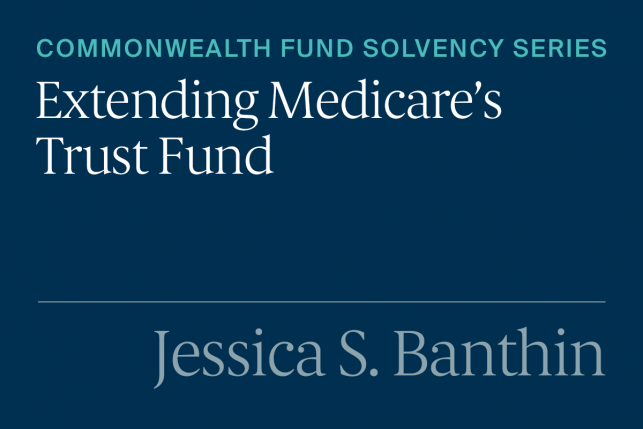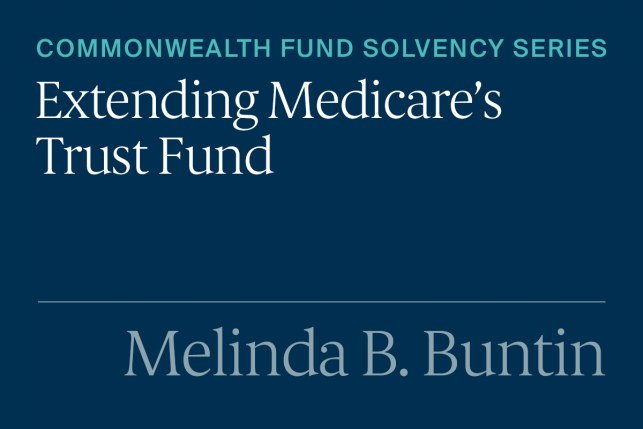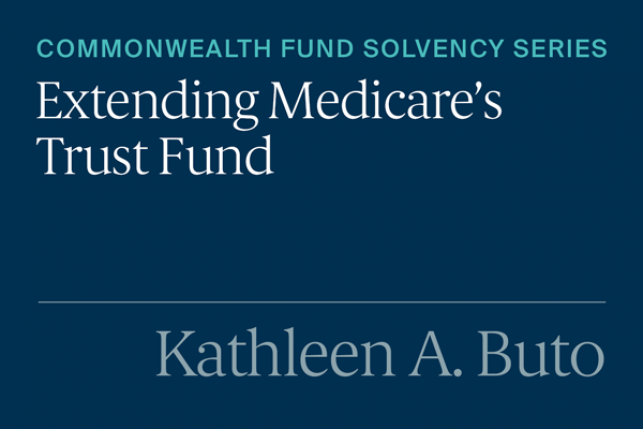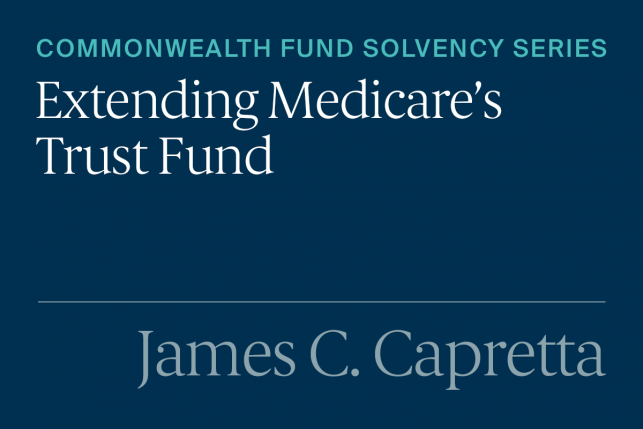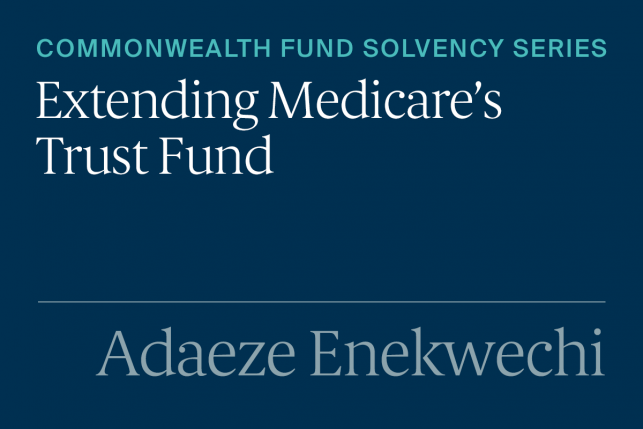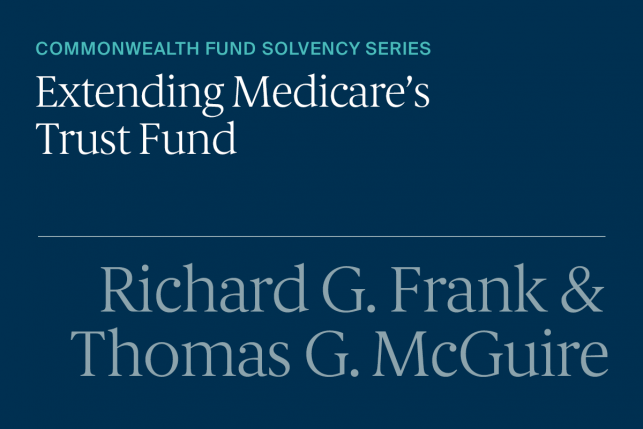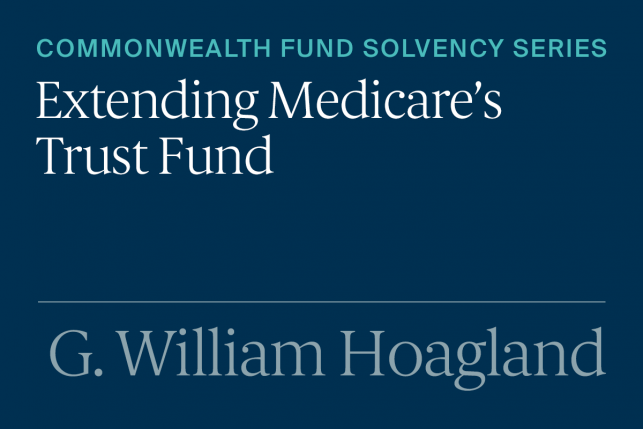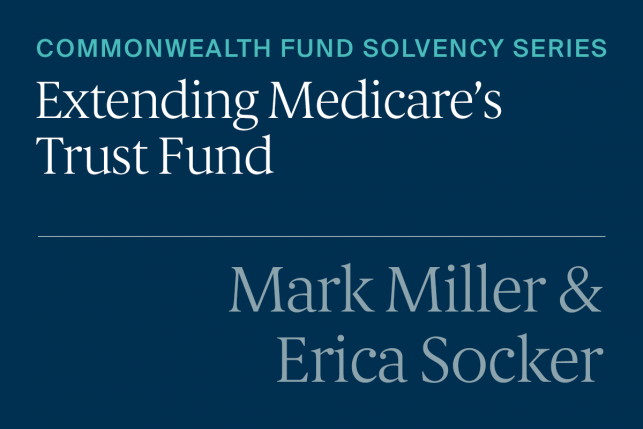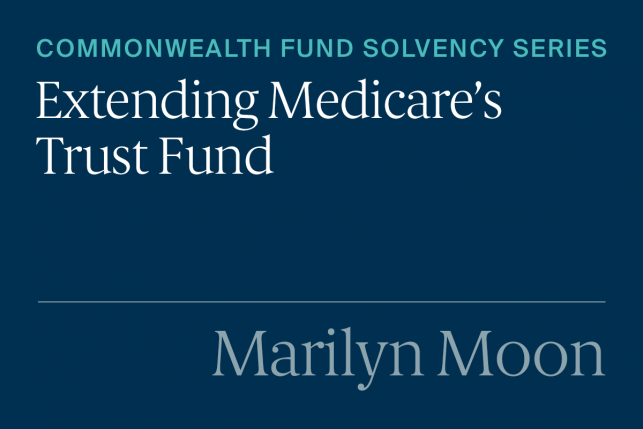The Medicare Hospital Insurance (HI) Trust Fund, which pays for Medicare beneficiaries’ hospital bills and other services, is projected to become insolvent in 2031. Without changes to expected spending or trust fund revenue, the trust fund will not have sufficient funds to cover the entire cost of beneficiaries’ health care. The HI trust fund is primarily funded through payroll taxes paid by employers and employees, with some additional income from interest as well as premiums paid by voluntary enrollees not automatically entitled to Medicare Part A. Will the trust fund solvency be extended by reducing the projected growth in expenditures, raising revenues, changes to the services covered by Medicare Part A, or a combination of these options?
To stimulate policy discussions, the Commonwealth Fund asked a group of Medicare thought leaders with a variety of backgrounds and political affiliations to outline how they would extend the life of the trust fund. This series presents their perspectives, highlighting areas of commonality while also putting forth some new ideas for addressing this pressing issue. A companion piece by Joel White and Liz Fowler discusses some challenges Congress could face in advancing Medicare solvency legislation. Medicare solvency could be addressed through reconciliation, and a piece by Sara Egge, Liz Fowler, and Rachel Nuzum takes a closer look at this issue.
